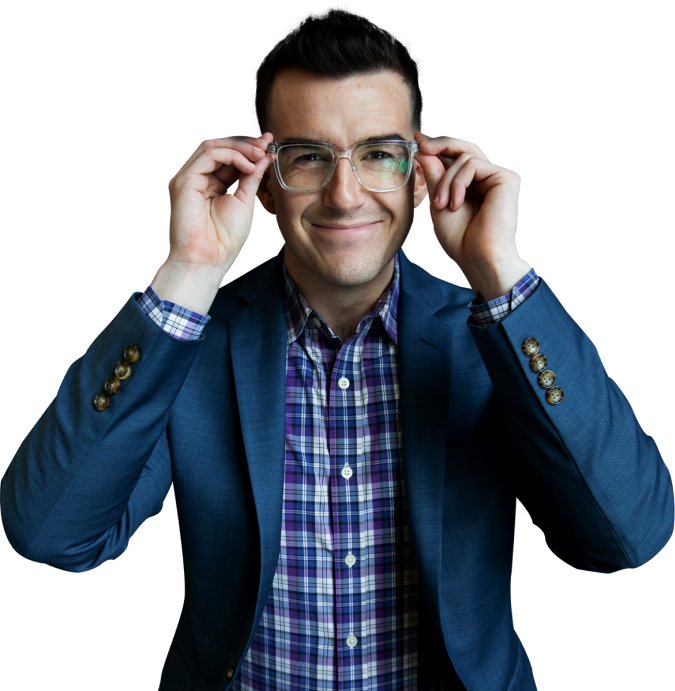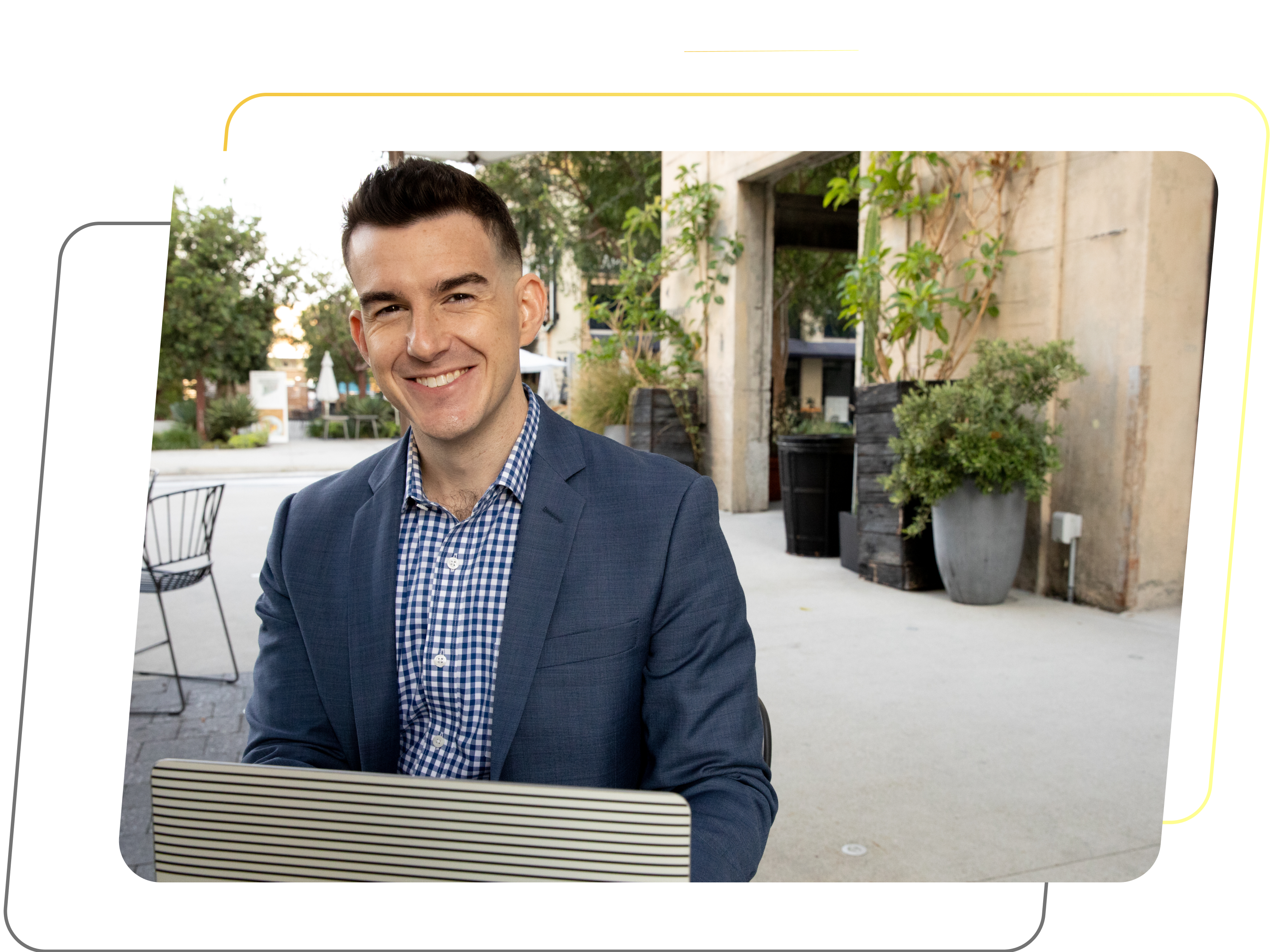
About Nick Wolny
Nick Wolny is an author, columnist and consultant based in Los Angeles.
Featured With
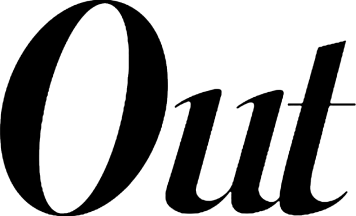

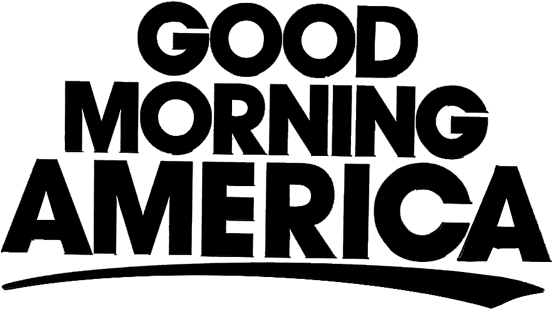


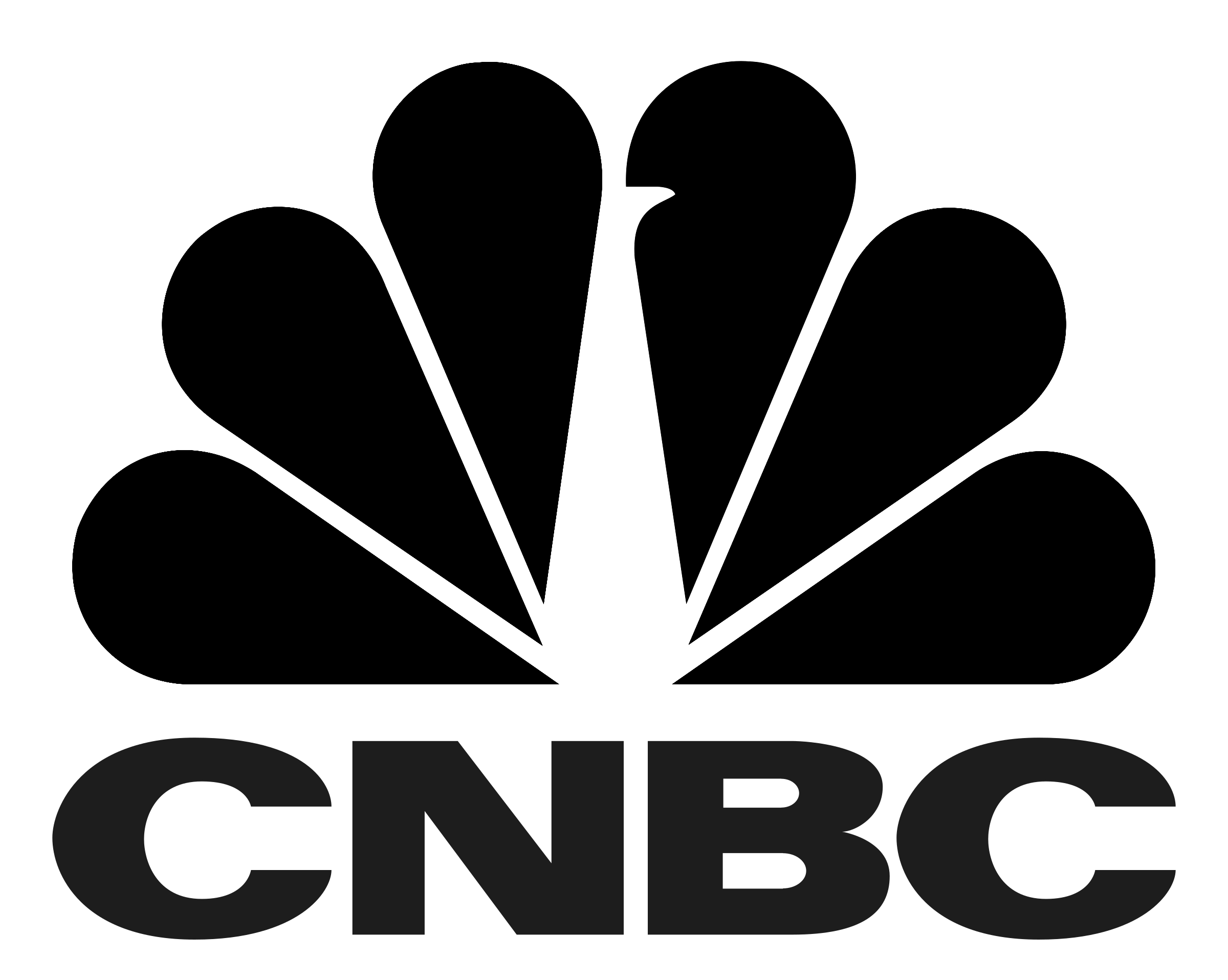
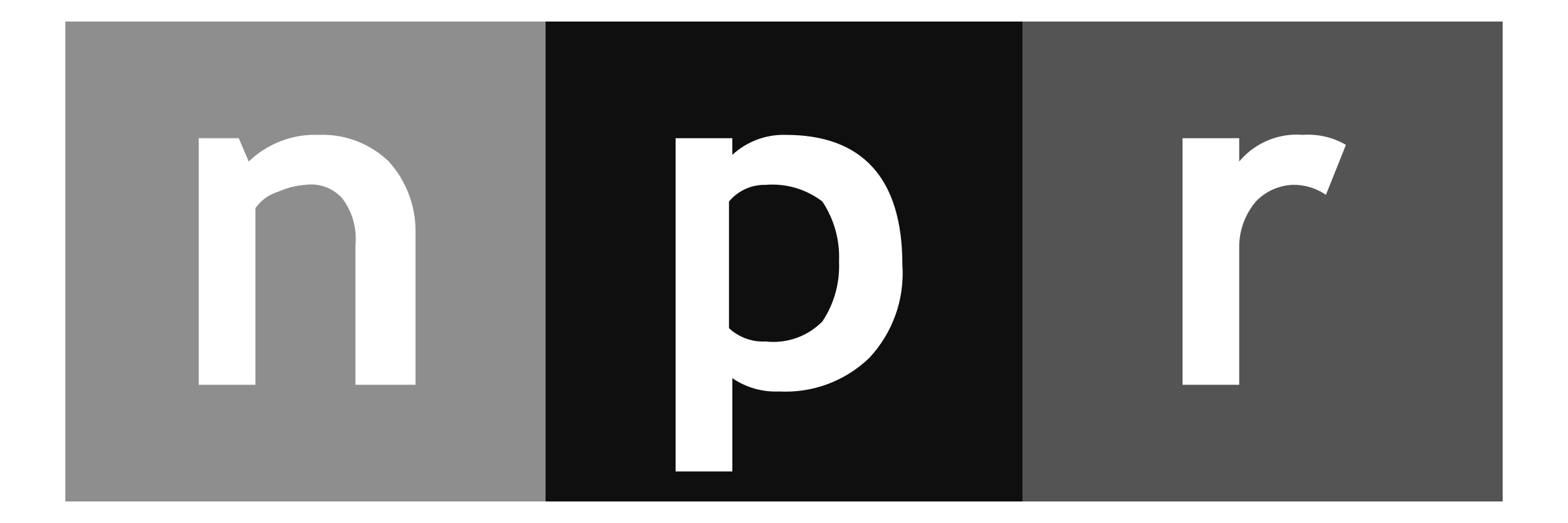


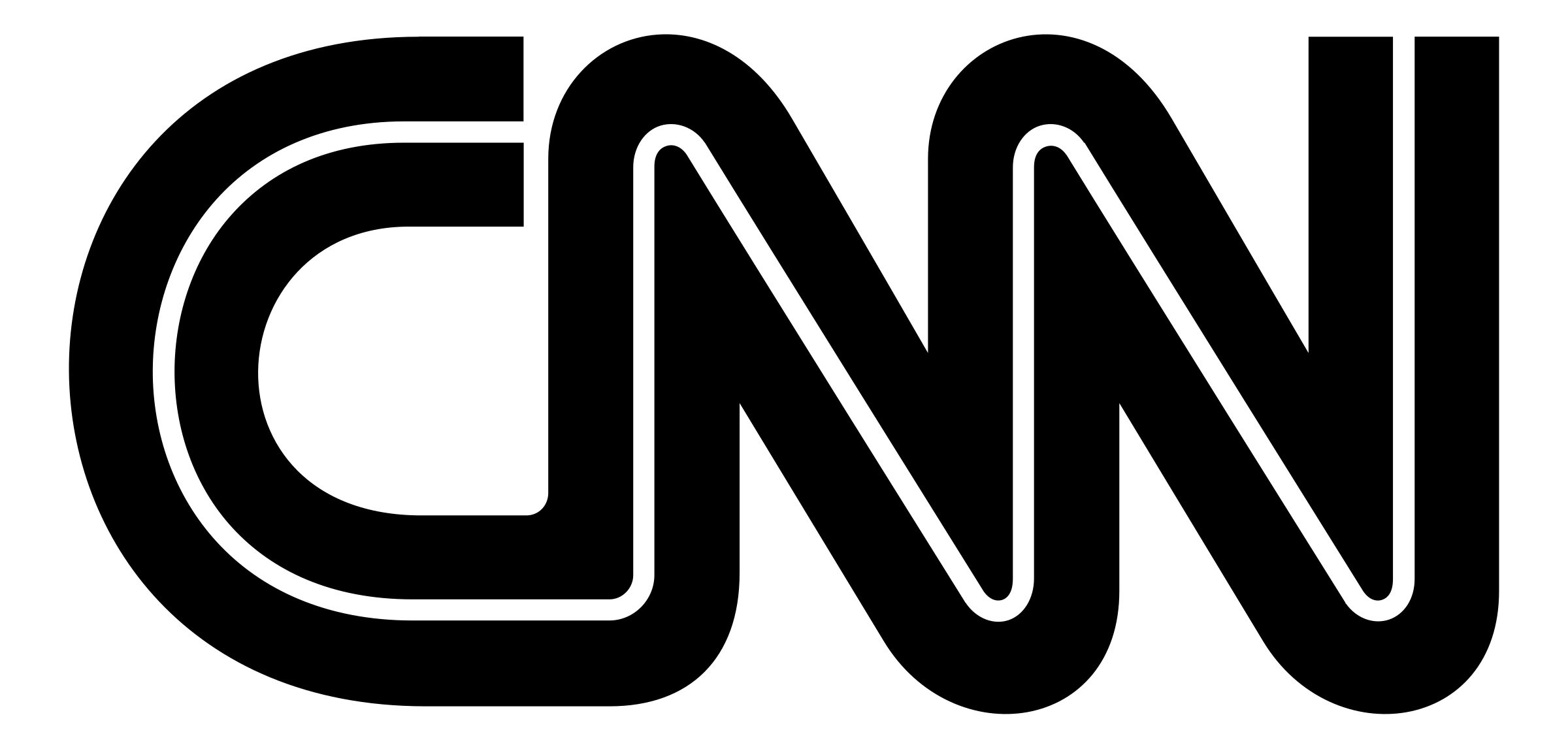

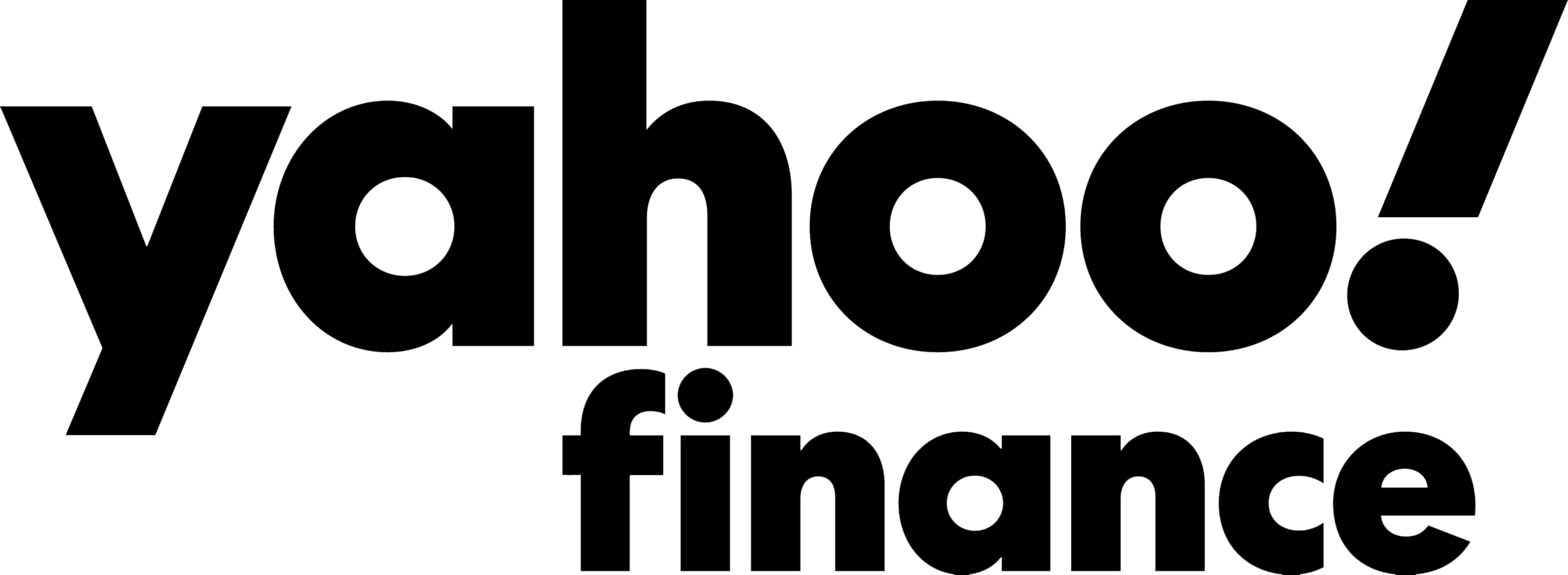
Wealth gaps are widening.
Rainbow capitalism rings hollow.
And what do you mean I can’t buy Double Scorpio anymore at my local smoke shop?!
It’s time for both queer people and allies to take financial matters into their own hands.
We must empower ourselves (and one another) to be independent and resilient.
This includes educating ourselves on the fundamentals of money: How to make, save and spend it in order to navigate the world around us.
(It also means learning about how money influences our world, too. This requires figuring out how to keep up on news and community without spiraling into doomscrolls.)
I write and talk about these topics in my newsletter Financialicious, a print column for Out magazine and my book Money Proud: The Queer Guide to Generate Wealth, Slay Debt, and Build Good Habits to Secure Your Future.
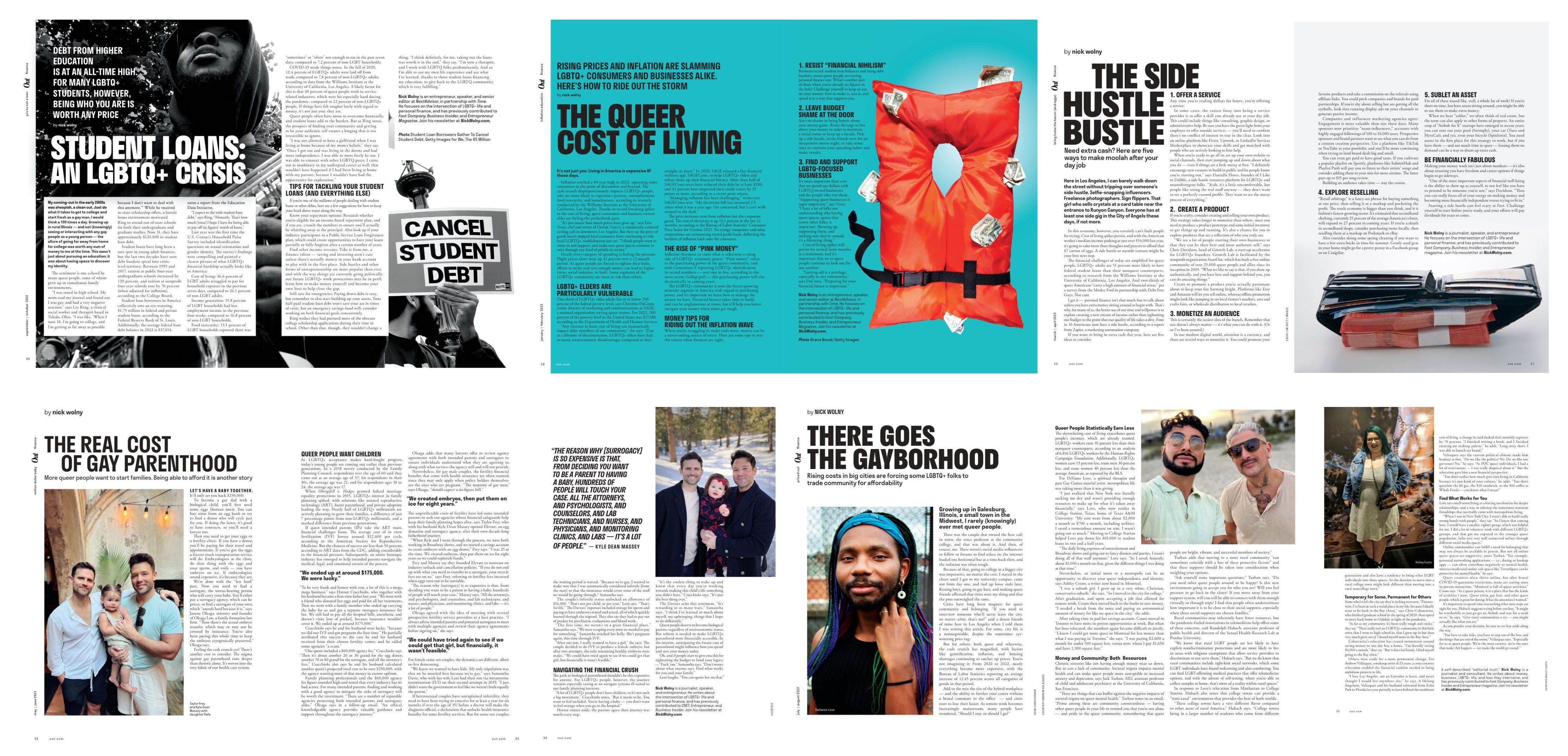
Here’s the longer “About Me” for those who don’t mind a little self-indulgent lore.
1987-2011

I grew up in Galesburg, Illinois, a three-hour drive from both Chicago and St. Louis. I was a chubby teenager with a kink for math. I stayed in the closet throughout high school, but did have one outlet in which I felt like I could express my true self: band class.
My initial reasons for picking up the French horn were survivalist. If you were in marching band, you got a phys ed waiver. This prospect thrilled me, because as a closeted teen I didn’t want to be in a locker room around other naked men and risk getting an uncontrollable erection, so I architected my whole life around avoiding such a predicament. Priorities!
But it soon became more than that. Music exposed me to the power of creativity, the thrill of performing and the camaraderie of nerdy friends. It became my thing.
The French horn helped me get a college scholarship – critical for my family’s lower-income household – and financed my move to a new city, a life change that gave me the space I needed to come out as gay.
I graduated from University of Illinois at Urbana-Champaign, then moved to Houston to do a master’s degree in music at Rice University.
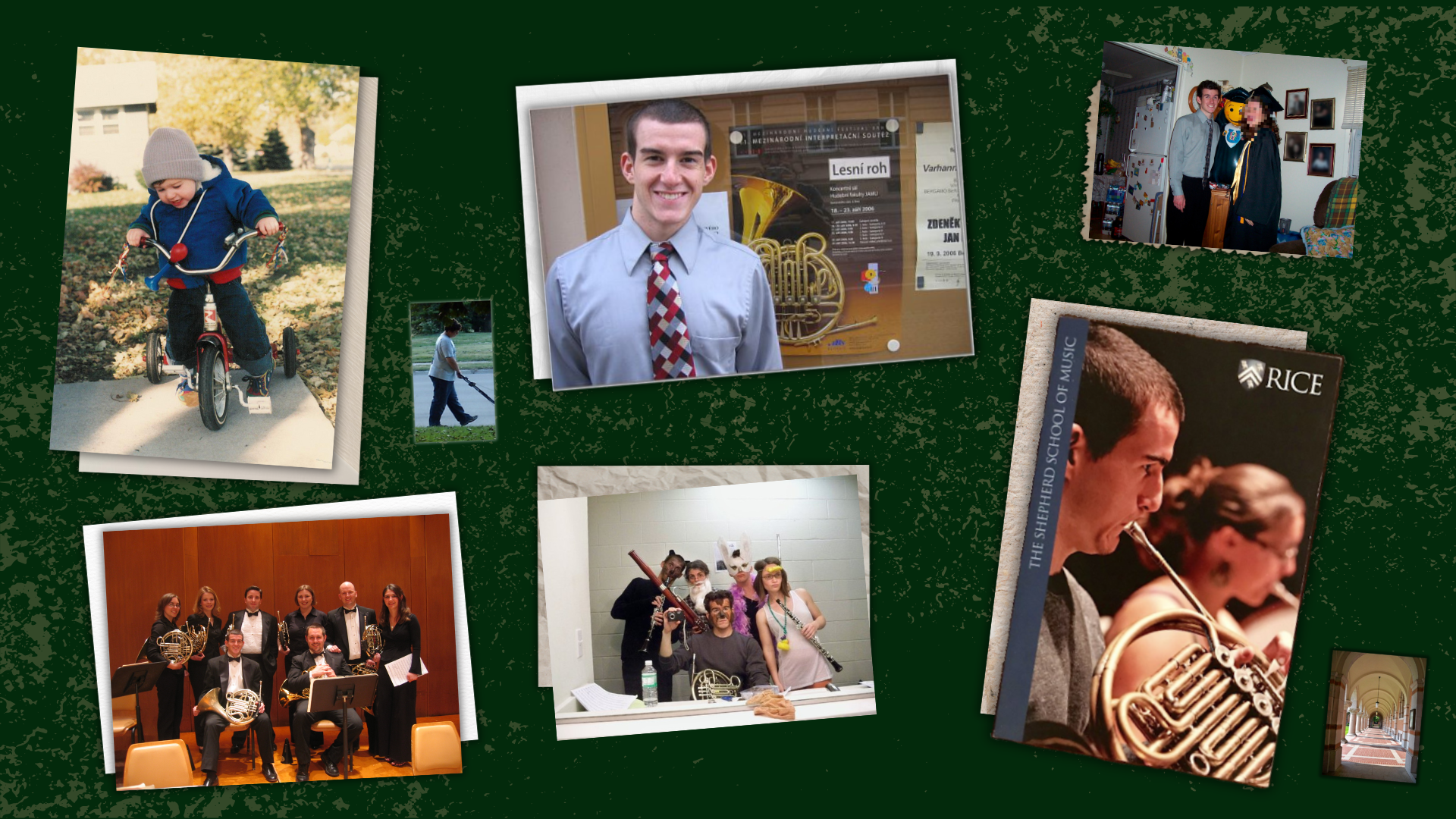
At Rice, I was alongside the best of the best. And being there helped me realize that, well, a career in classical music wasn’t really what I wanted to do.
I was 24 at the time. I’d been out for several years, had made out with strangers at gay bars once or twice (maybe more) and had every scene of Lady Gaga’s Telephone music video memorized.
My initial attraction to music – queer self-expression – was now being fulfilled by other areas of my life. I didn’t want to keep practicing all day long and flying to auditions and pouring money into a craft that had run its course.
So, after grad school, I took a short break from playing, which turned into a longer break, which turned into me never picking it up again.
I eventually sold my instrument, which was sad at the time. But I did eventually get a tattoo of one of the most common French horn excerpts as a little homage to that time in my life.
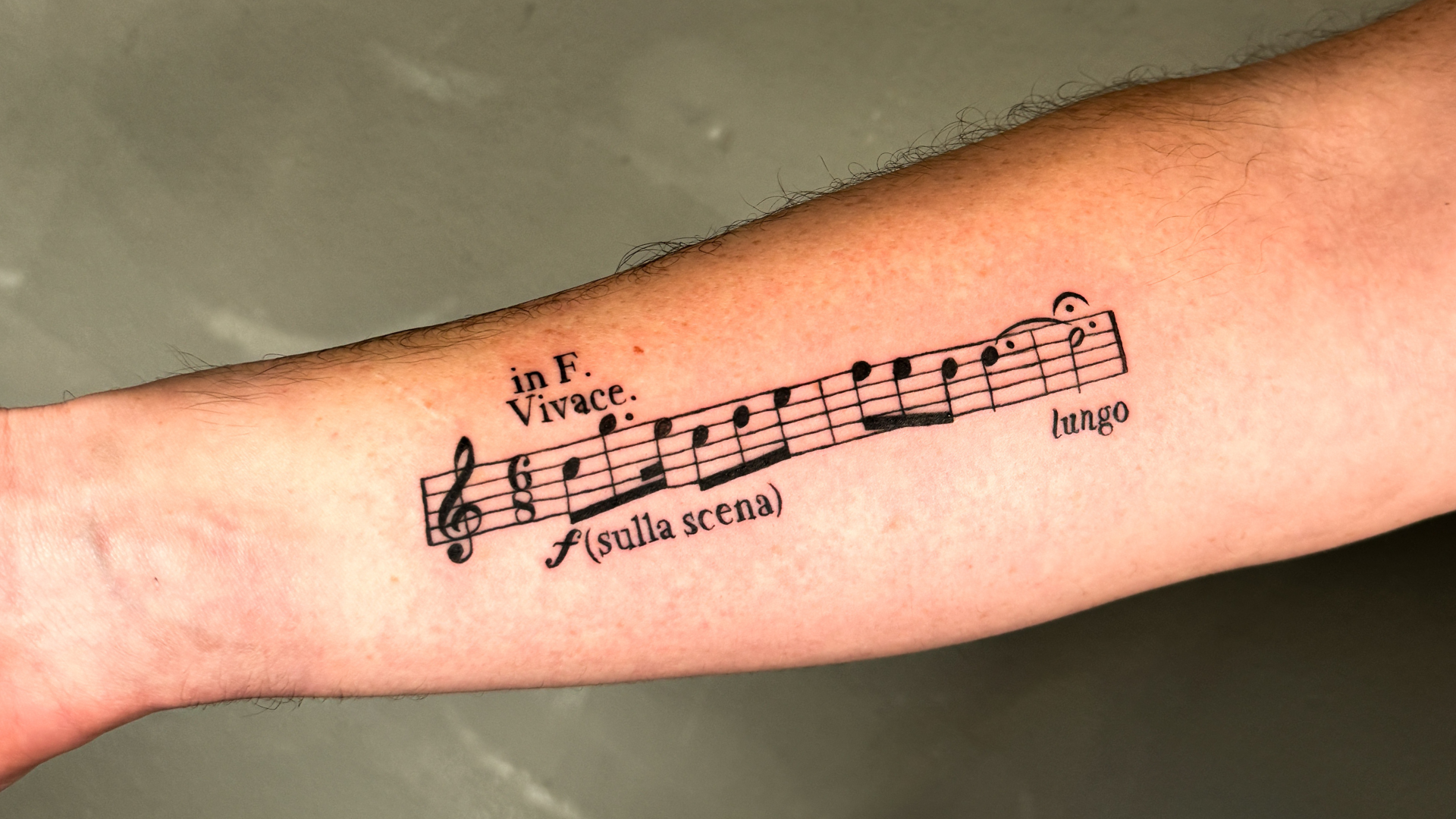
Ask me about this cute lil’ fanfare the next time you see me.
2011-2016
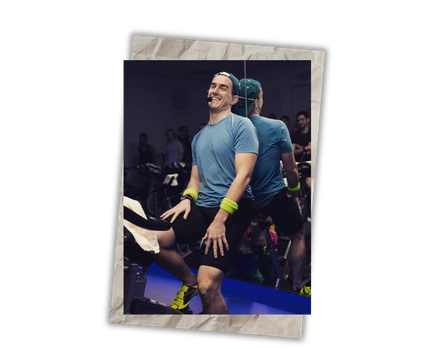
It’s 2011. Occupy Wall Street jumpstarts conversations about corporate greed, Bridesmaids had us in a comedy chokehold and the U.S. military’s homophobic “Don’t Ask, Don’t Tell” policy is repealed (Yes, this only just recently happened).
Quitting classical music was terrifying, because up until this point I’d basically been orienting my life around one goal, which was to win an audition with a professional orchestra.
There was also all that damn student loan debt – grad programs from private schools ain’t cheap – for two degrees that felt like cement blocks.
Cut to a montage of the remainder of my twenties, in which I stumbled around trying to figure shit out and make ends meet. I lived in crappy apartments and had a bizarre “Jagermeister, neat” phase. Work was one odd job to the next: retail manager, yoga teacher, fitness instructor and whatever other -r put money in my pocket.
I also experienced the demoralizing era many twentysomethings endure in which you apply to dozens of job postings and get jack shit. Young professionals out there in the trenches right now, I see y’all.
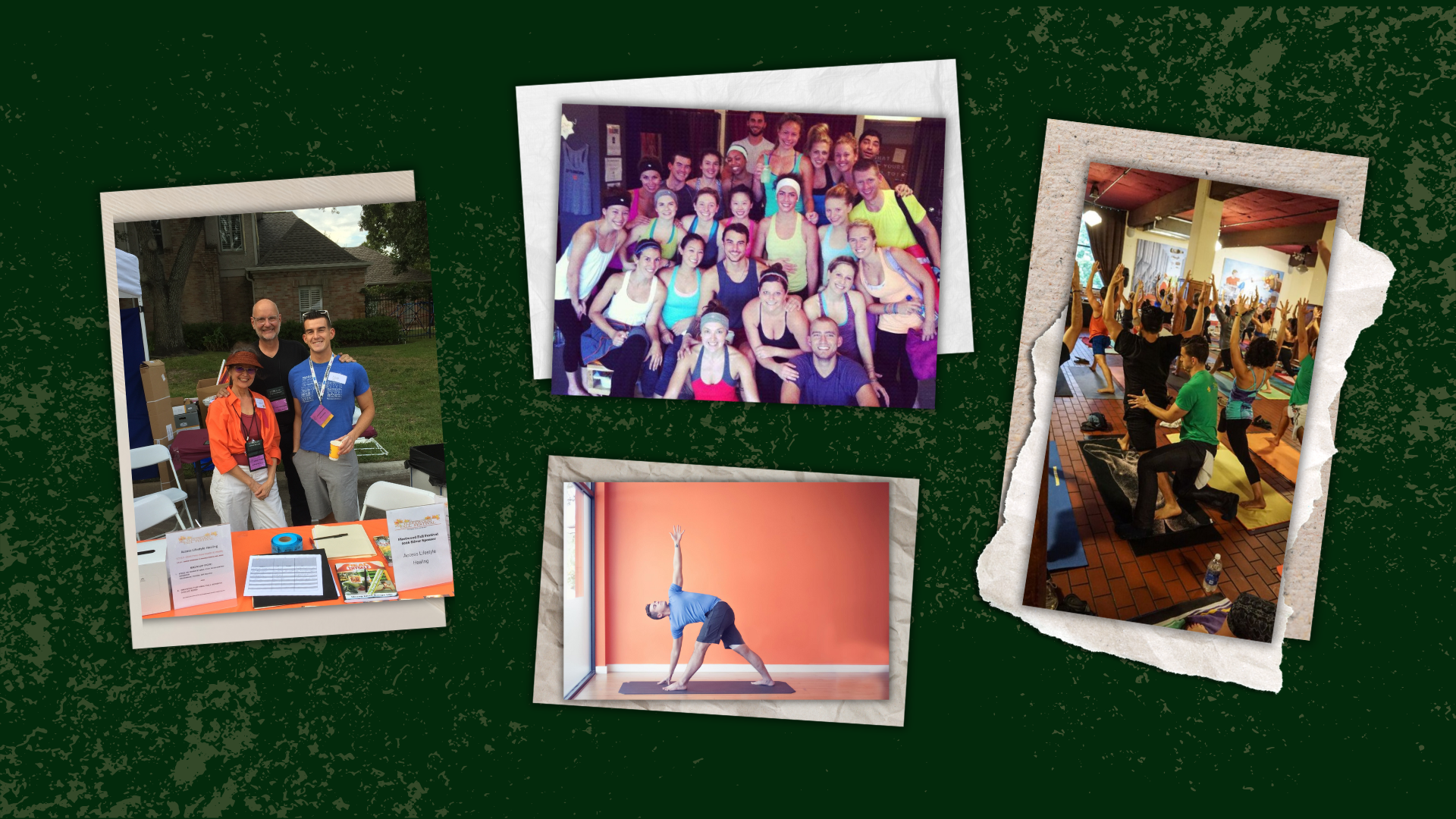
Eventually, I found my way into online entrepreneurship. I realized I could upskill with just a laptop and a free afternoon at a local café, preferably while sipping a strong Americano. I educated myself on digital marketing, skills that (usually) don’t require demonstrating pigeon pose to a group of frowny yogis at 5:30 in the morning, so it was a nice way to make extra bucks. It also scratched that career skills itch that’d been bothering me for a while.
The online business world has some of the most talented and creative professionals I’ve ever met. It also has bad actors and a lot of narcissism.
My lived experience is that, when I started working online and getting freelance clients online, I had more control over my earning potential and my financial future. I would have months here and there where I made more money online than I did at my jobs in retail or hospitality.
“I could do this full-time,” I thought to myself. So I did.
2016-2021

It’s 2016. Pride month is bangin’ (though nothing will top Houston Pride 2015, because it was the day after Obergefell v. Hodges legalized same-sex marriage, so people went wild). TikTok still does not exist. I also met a boyfriend, and we had a great relationship that lasted a little over eight years before ending recently.
Feeling bullish, I established my business, Less Noise More Volume LLC, and made freelance copywriting and digital marketing my main thing. The business name is a reference to my music school background; it’s giving resonance, ease, overtones and a relaxed diaphragm. More sound with less effort, obvi.
Walking my talk, I marketed my services by writing, leveraging strategies like contributed articles, personal stories, guest posts for publications and so on. I met some media editors and producers who went on to become work colleagues. My client book started with what I new, boutique fitness, and later expanded to SMBs, venture-backed startups and SaaS companies that needed a fractional marketing generalist.
I also went to some business events and masterminds, and eventually organized my knowledge into more streamlined and branded intellectual property. For one trademark, Camp Wordsmith®, I built a kickass client portal that served several hundred clients and still exists today.
In 2021, said boyfriend got a job in Los Angeles, so in May of that year we moved from Houston to the City of Angels.
Then I got stuck.
Fall, 2021
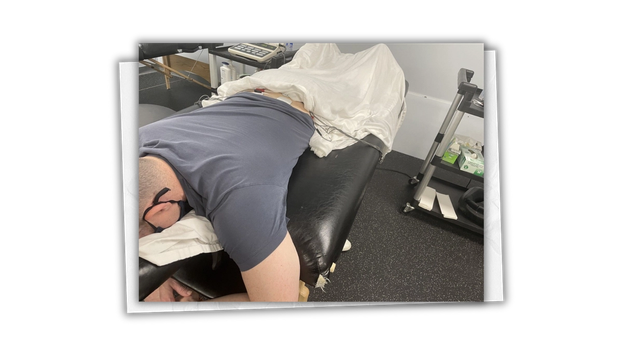
“Everyone is so f***ing fit here!” I thought to myself 100 times a day upon moving to Los Angeles. So I got a membership to a local weightlifting gym and started going to group fitness classes (familiar territory for me).
I was warming up one day when something tweaked in my lower back. My whole life changed at that moment.
“Haha, threw my back out again!” I initially yelled out in millennial to dispel attention. But sleeping it off like I had the last nine times I’d thrown my back out didn’t work. The discomfort kept getting worse. There were no slipped discs, but I was in continuous sciatic pain, enough to be on painkillers all day for months.
The hustle got harder. Going alone and working ridiculous hours lost its luster. And let’s not even get into how shitty and expensive self-employed health insurance can get.
For the first time in years, day job life appealed to me. And this time, I had skills I could bring to the table.
2022-2023
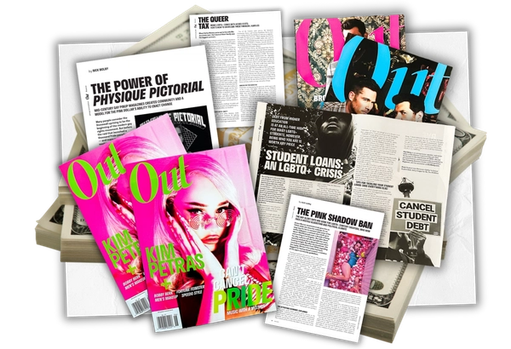
At the beginning of 2022, I was writing freelance for a personal finance publication called NextAdvisor, which was a partnership with TIME. They put out a call for a new senior editor role and invited me to apply.
This editor job would oversee coverage of a new vertical called financial independence. The strategy was to foil the usual finance media mainstays – coverage on banking, credit cards and mortgages – with flashy write-ups about people making money in new and unorthodox ways.
I did some interviews and edit tests, got the job and started that March. We covered stuff like side hustles, the creator economy and the financial independence, retire early (FIRE) movement. More importantly, NextAdvisor is where my passion for personal finance journalism took off.
The job released pressure because it gave me a salary and health insurance. But it also gave me direction at a time when I felt like my writing had plateaued.
Up until this point, my writing had always been marketing-focused: “Think this, now go buy that.” But digital media is way more steeped in the principles of journalism.
I didn’t have any formal training in journalism. My background was street smarts as a self-taught marketer, a Master’s degree in classical music and an honorary PhD in making sassy side comments.
Where I did have experience was in how to systematically practice and improve. I learned journalistic writing and editing on the job, and this growth reignited my passion. I also got the kind of writing mentorship you simply can’t buy, which was formative.
My back was also finally getting better, which meant I could explore my city (my injury happened three months after moving here). In true LA fashion, I met someone at a party who led me to a new opportunity.
On a Thursday night Halloween party in a warehouse space on Sunset Boulevard, I met Dan Reynolds, the editor-in-chief of Out magazine. I actually don’t remember who pitched who, but we agreed we should test-drive a finance column in Out and see what happens.
Three years later, we’ve covered gayborhood cost of living, same-sex surrogacy, inflation, student loans, side hustles, creator censorship and more.
Sadly, NextAdvisor shut down shortly thereafter, so the parent company had us transition to new publications. I ended up at CNET, where I pinch hit for a while on the Money team before moving to a role overseeing branded content.
2024-2025
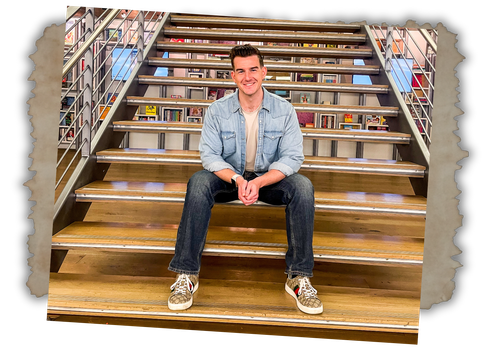
In 2024, a baby hippopotamus has become internet-famous, staffers had gay sex in the Capitol and anti-trans legislative efforts continued to build momentum.
I was a bossy marketing gay by day and a Carrie Bradshaw-wannabe columnist by night. AS I wrote and reported on queer people’s economic well-being, it became clear there was a gap in good personal finance information for queer people. So I began having conversations in the book publishing space, developed a nonfiction book proposal and got a literary agent.
Together, we sold my first book, Money Proud: The Queer Guide to Generate Wealth, Slay Debt, and Build Good Habits to Secure Your Future, to William Morrow, an imprint of HarperCollins.
The way the book timeline worked out, I had seven months to deliver the 80,000-word manuscript, and your boy’s a busy little bee over at that day job. So I had to dust off some of my music school skills to get it done. Skills like practice, self-direction, ruthless focus and delivering under pressure.
Music school really did give me incredible career skills. They’ve just taken longer than expected to fully emerge. Perhaps that’s true for your background as well.
At 38, I’m starting to think about my legacy, what I want to create in the world and how to use what I know to help my community. One expression of that is developing financial literacy with myself and for others so that we can all live better, more joyous lives.
If that’s true for you as well, you should join us. Here are three ways you can do that.
- Subscribe to my newsletter, Financialicious. It’s free to subscribe, or you can purchase a subscription and get access to premium content and other goodies.
- Buy my book, Money Proud. It’s good! I also narrated the audiobook if you’re more of a listener than a reader. See options here.
- Send this web page to someone and share with them why you wanted to do so. Vibe-y referrals are funnest when they’re fresh, so forward it now before you get distracted.
While you’re at it, connect with me on all the socials and mention this page is what brought you over; I like to know who my “people who read” are. Instagram TikTok LinkedIn YouTube
(To inquire about consulting, go here.)
More soon. For me, and for you. The best is still ahead.
